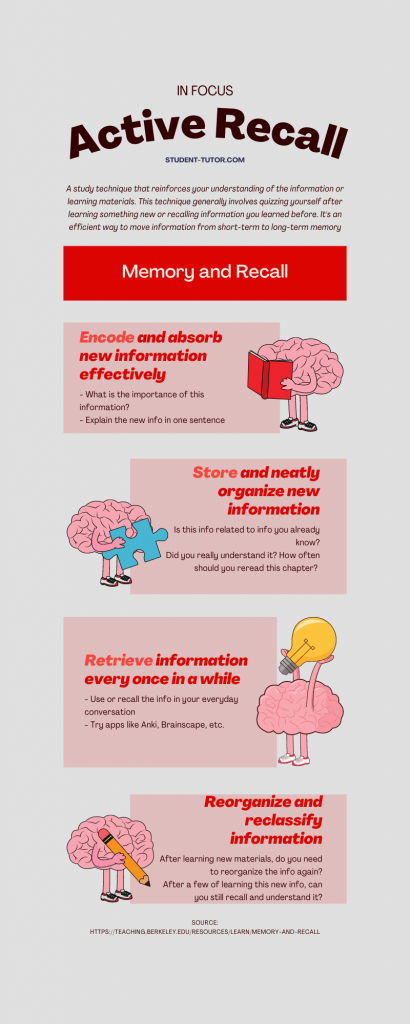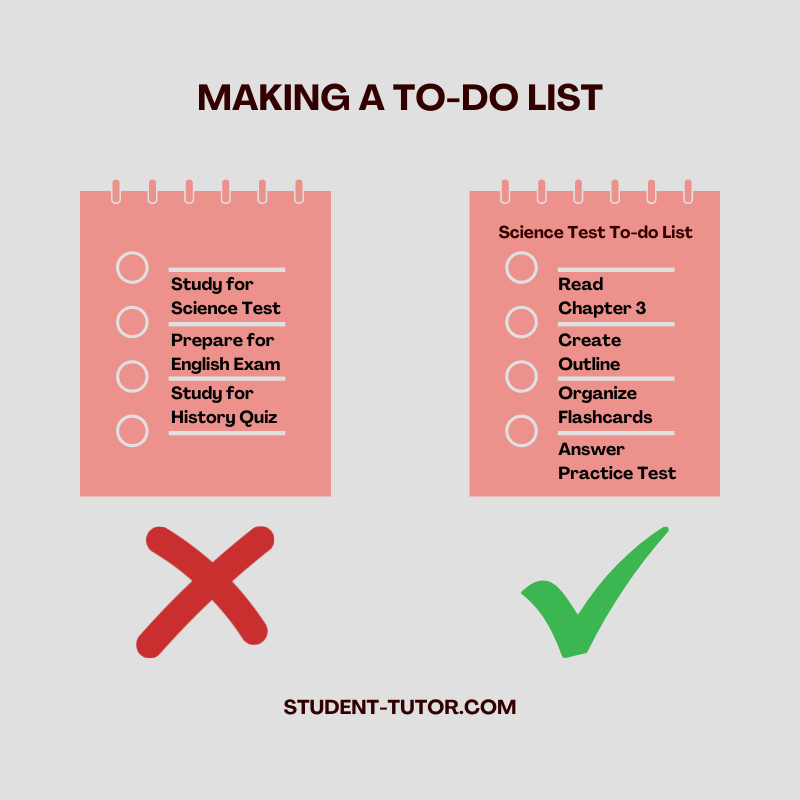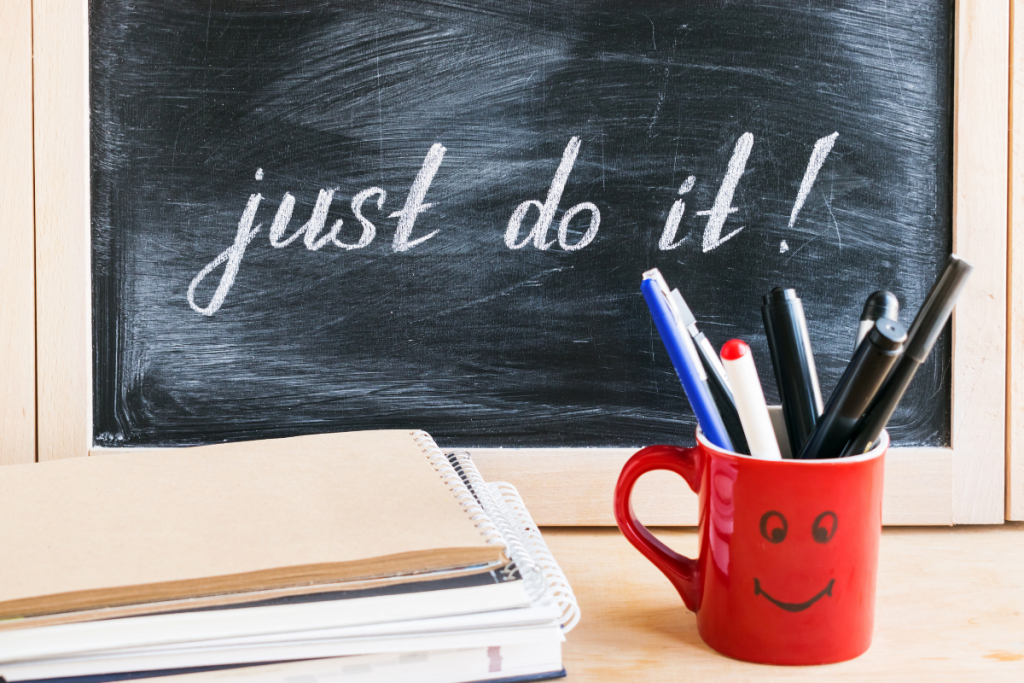There are many times where we spend more time complaining and less time studying. Times when we start to daunt the task that’s right in front of us and think about all the other things that we’d rather be doing.
We get stuck on this procrastination cycle of putting off tasks for later, and before we even notice it, we just wasted a whole day without accomplishing anything.
That’s not any way to live.
But, don’t worry. You’re not battling procrastination alone. Other students and even teachers have suffered from procrastination at some point in their lifetime too.
So it’s perfectly normal to look for ways on how to overcome it.
That’s why we have put together a list of 7 tips that you can use to push procrastination away and start studying more effectively than ever before.
If you find that you can’t concentrate and constantly lagged on your schoolwork, then try these tips and watch how your productivity soars.
Table of Contents
Stop Looking for Shortcuts
When you start your task by thinking about how terrible it’s going to be, it’s likely going to be pretty terrible.
It’s all about perspective, and the more positively you approach your time studying or finishing tasks, the better it will go.
So, instead of instantly dreading what’s ahead, try and look at the positive side. We promise it’s there, you just have to keep looking.
Get excited for the things you’ll be learning and try to look on the bright side.
With every little task you finish, you keep getting more and more closer to your end goal.
Start with easier tasks first, and then build from there.
Always remember that there are no shortcuts and good things don’t come easy.
Take Things in Bite-Sized Chunks
Instead of studying the whole chapter of 70 pages in one go, break it into series of small and manageable chunks. This way, it would be much easier to digest and remember all the information.
Try to study in 30- to 45-minute increments, then get up, walk around, stretch, and get back to it. You’ll feel more energetic the next time around.
Give yourself an ample amount of time to absorb all content, and then after that, test your understanding to make sure that you really understand it.
Remember to always do the latter! Most students fail to do so and just quickly move on to the next chapter after reading it.
From our observation, active recall or testing your understanding of the topic you just read is the most efficient way to study.
In fact, aspiring doctors and med students often use this technique to study and remember an excessive amount of information.
So here’s what you need to do,

- Encode and absorb new information effectively
- Store and neatly organize this new information
- Retrieve this information every once in a while
- If need, reorganize and reclassify this information
Don’t Be Too Hard on Yourself
As we have said before, a large majority of students suffer from procrastination.
You’re on this long-haul journey of overcoming it with your friends and classmates as well. So don’t be too hard on yourself.
Always remember that it’s okay to ask for help.
Some people find that the best way to overcome procrastination is to simply get help and work with other people so that you would be compelled to do more and keep moving.
Doing this would not only motivate you but would also lighten your load and make a challenging task a lot easier.
Don’t beat yourself up, trying to accomplish everything in one sitting. If you ever need to pencil in a break, you should do it.
Sometimes, we just need to clear our heads and rest a bit. There is no harm in taking a time off and stepping away to recharge and boost our productivity again.
Make a To-Do List
Every big goal becomes more attainable and easy to reach every time you list it and break those goals into smaller tasks.
It’s much easier to keep track of progress when you have a to-do list. You would be able to remember everything you hope to accomplish for the day, and you can easily check through them as you go.
On top of that, listing all your tasks and responsibilities for the day also has other ups and benefits.
If you’re a chronic procrastinator who easily gets demotivated, then having a to-do list can supercharge your creativity and give you a little motivation boost.
Given that you’re checking and tracking all your progress, it would give you a sense of accomplishment and instant gratification every time you cross off an item in your to-do list.
This would not only motivate you to work and study harder but it would also make even the hardest and most unpleasant tasks a lot more bearable and easy to manage.
So before you end the day, jot down all the tasks you wish to complete. Then, get organized and find out if you can still break down the task you have just listed into a specific and much smaller task.
As much as possible, keep your to-do list direct, simple, and specific.

Get Perfection Out of Your Head
Too many people get wrapped up in the concept of perfectionism.
Perfection is not possible, and there will always be things that you don’t do right or efficiently enough.
Whether you are writing an essay for money or just studying for your finals, the most important thing is to just get started and do the best that you can at the moment. It doesn’t matter if the output is not that great, the important thing is you were able to get started.
Anything is better than nothing.
With anything, you have something to work on and improve on. Remember that you can always dial back if needed and overcorrect your previous mistakes.
But with nothing, you’re not even progressing and you’re just stuck at one place, feeling even more unhappy and unmotivated than before.
So don’t beat yourself up, trying to be perfect, and worrying too much about your mistakes. Doing this would only make you procrastinate even more, and at the end of the day, you would accomplish nothing and would just be filled with negative emotions.
With that said, try to overcome perfectionism by getting your foot in the door and making the first leap towards your goal.
Cut Out Distractions
Distraction is the number one enabler of procrastination.
In this digital age, you now have to deal with tons of distractions and find ways on how to best avoid them.
Apart from your internal ongoing battle with procrastination, you still have to fight off and not give in to the temptation of what these distractions have to offer.
Saying this is easier than done because you can get stuck on this never-ending spiral of distractions and instant gratifications. Your brain can easily get addicted to short-term rewards without a payoff in the long run.
From social media to text messages, shows, and more, there are many things that you have to fight off in order to stay focused on your goals.
The likes you get from your Instagram post, videos that make you laugh on TikTok, and retweets you get on Twitter are all tiny snacks that stroke your ego and fuel your satisfaction.
While these are both important for self-development, they can be harmful and even leave you too dependent, reliant, and even addicted to these distractions.
So the best thing you can do is to steer clear from all these and develop a certain routine or habit.
This way, you would encounter fewer distractions and you would not get easily sidetracked as you work towards your goal.
Remember that the fewer distractions, the more focus, and the quicker you will be at the finish line.
Push the Reset Button
Instead of working all day, attempting to complete a task in one sitting, it’s much better to push the reset button or even call it a day rather than spread yourself too thin.
Sometimes, being too overworked is simply not worth it.
Your health should always be your number one priority.
Besides, you cannot effectively study if you’re not in good shape. Overworking and stress build-up would just lead to anxiety and risk to your health.
With that, try and work for a few hours in the morning, focusing on daunting tasks.
Then, take a break, have lunch, and reset your brain.
Later on, when you come back, you will feel more refreshed and ready to start again.
Pressing the reset button does not always mean going back to zero and starting again. Sometimes, the reset button can just be a nudge. A sign or a reminder to breathe a little and look back on your progress.
Without these little breaks, you would not be able to see the progress you made, and without knowing it, you’re simply running and wasting your energy on milestones you have already achieved before.
Just like studying, you’re just relearning one subject over and over again, when you should be worrying and dedicating most of your time and energy to your weak subjects.
So as much as possible, take breaks in between several tasks.
Stop Procrastination Before It Starts
The best way to prevent procrastination is to rethink and reevaluate your daily habit constantly.
This way, you can easily pinpoint where procrastination might stem out and prevent it before it even starts.
Rather than try to solve and overcome it when you’re already knee-deep, why not just stop it from happening in the first place?
You can do this by simply listing your daily habits and then finding ways on how to correct them or even better, make your process more efficient.
Find where you can use your time more effectively and switch it up a little and try to make every task a lot more bearable or enjoyable.
Once you know the things you’d like to change, you would be able to establish better habits and set yourself up for success in no time.
Little habits lead to big differences.
It’s like playing chess. Every move you make plays a part in your overall strategy.
Without these little moves, you would not be able to draw the whole picture of the game and you would not win against your opponent.
Hold Yourself Accountable
Being accountable means being held responsible for both the good and the bad.
On the one hand, you get to enjoy every win, achievement, and reward, while the other means you are also liable for every failure and mistake.
You cannot find any excuses and blame anybody since everything falls in your hands.
Given the immense accountability and responsibility that you have, you are less likely to procrastinate and more likely to work harder.
Even so, the weight on your shoulder feels much heavier because of the duties and tasks you have to accomplish. With that, you maintain this sense of urgency to always be on the move and get things done as quickly as possible.
But as we have briefly mentioned before, too much stress and pressure build-up can do more harm than good in your body.
That being said, try to balance out your duties and find ways to avoid tasks from piling up. This way, you would not be too overwhelmed and there would be less stress build-up in you.
Start Seeing Results
The key thing to remember is that if you don’t get started now, all your tasks would just pile up and all of it would eventually come back to bite you.
If you follow these tips and advice, you would be able to pave your way towards success and you would have more time to enjoy and do other things you love.
- Stop Looking for Shortcuts
- Take Things in Bite-Sized Chunks
- Don’t Be Too Hard on Yourself
- Make a To-do List
- Get Perfection Out of Your Head
- Cut Out Distractions
- Push the Reset Button
It’s not about how hard the task is.
It’s about how hard you try to accomplish it.
Todd VanDuzer
Latest posts by Todd VanDuzer (see all)
- Why Finding the Right Thing to Study Matters: Setting the Foundation for Success - July 26, 2023
- How USA Staff Onboarding Benefits From Innovative Software - July 26, 2023
- Top 7 Best Reasons to Get an MBA - June 7, 2023
- How to Support Your Child When They Go to College - April 29, 2023
- How to Maximize Your Job Search with Expert Resume Writers Experienced in Your Field - April 20, 2023

